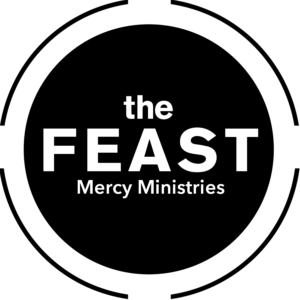The PRISON MISSION
 ‘Liberty to Captives’
‘Liberty to Captives’
“IF you take away the poor, there is no gospel…”
Try this simple exercise: Read the Gospels once again. Strike out all the portions where Jesus served the poor, spoke to the poor, healed the poor, defended the poor, taught about the poor, and told stories about the poor. How much of the Gospels is left? Answer: NONE. The Gospel is the Good News to the POOR!
OUR POOR
In my study and my actual personal immersion in the plight of our Filipino prison inmates, I have categorized the following as the major issues haunting the conditions of God’s poor in the Philippine prison system:
Gross Overcrowding
In 2018, the Philippines held the sixth-highest prison population out of 21 Asian countries.
According to World Prison Brief database, the Philippines was ranked highest in the world in jail occupancy rate in their latest report. As of 19 March 2020, according to the Bureau of Jail Management and Penology (BJMP), the congestion rate in their 467 jails is at a staggering 534%! This severe overcrowding in prisons leads to illness and death tolls in the thousands.
Delayed Justice
According to The World Prison Brief, 75.1% of incarcerations within the Philippines’ incarceration system are pre-trial, meaning people are serving sentences without conviction. What makes the injustice even worse is that people may serve time that outweighs their crimes. On average, prisoners in the Philippines are detained for nine months without being sentenced!
 Hunger and Malnutrition
Hunger and Malnutrition
Since July 2018, the Bureau of Corrections has been spending only Php 13 per meal for each prisoner (according to the reports of the Philippine Senate Inquiry, as reported by Rappler on 03 October 2019).
This means the government spends a total of Php 39 per person per day for his/her breakfast, lunch, and dinner.
High Death Tolls
About 5,200 inmates die annually at the New Bilibid Prison (NBP).
According to Ernesto Tamayo, the hospital medical chief, these deaths are due to overcrowding, dirty living conditions, and inmate violence.
At a 2019 Philippines Senate hearing, Tamayo said that there were “uncontrollable outbreaks of pulmonary tuberculosis.”
In addition to overcrowding, poor living conditions, and inmate violence, NBP lacks nutritional food and basic healthcare. On account of these living conditions, Tamayo reports that at least one prisoner dies at NBP each day.
Corruption
A rich inmate can “buy” a Good Conduct Time Allowance (GCTA), or ‘parole’ in simple words, for Php 50,000, while a poor offender has been in jail for three years, still awaiting the schedule of his first arraignment. Reports are not infrequent that ‘celebrity’ convicts can “live like kings” with personal cooks and nurses for a fee. There have been allegations of prison workers and officials taking bribes to bring in ‘amenities’ (cellphones, TV, laptops, etc.) and illegal items, including drugs. On the other hand, inmates who cannot pay are stuck in the filth, stench, and sore of the sub-human living conditions.
OUR CALL
I believe that in the darkest of places, God reveals His light. In the poorest of conditions, Jesus comes and announces His salvation:
“The Spirit of the Lord is upon me because he has anointed me to bring glad tidings to the poor. He has sent me to proclaim liberty to captives and recovery of sight to the blind, to let the oppressed go free, and to proclaim a year acceptable to the Lord.” —Luke 4:18-19
God’s poor, the prison inmates, are the VIP’s (Very Important Persons) in the ‘upside down’ kingdom, known as the Kingdom of God, that Jesus has come to restore.
While there have already been existing ministries that are serving the prison inmates, still much has to be done in this mission field. What makes our response different from the others who are doing it is two-fold: First is the theological foundations of our ministry philosophy. Second is the scope of our ministry model.
We do God’s work, founded on His truths, empowered by His Holy Spirit, guided by His principles, sustained by prayer, and driven by His love. This determines our identity. This characterizes our relationships as a family of servants. This defines (uniquely) our measures of success.
NEXT WEEK: Theological Basis for the PRISON MISSION

